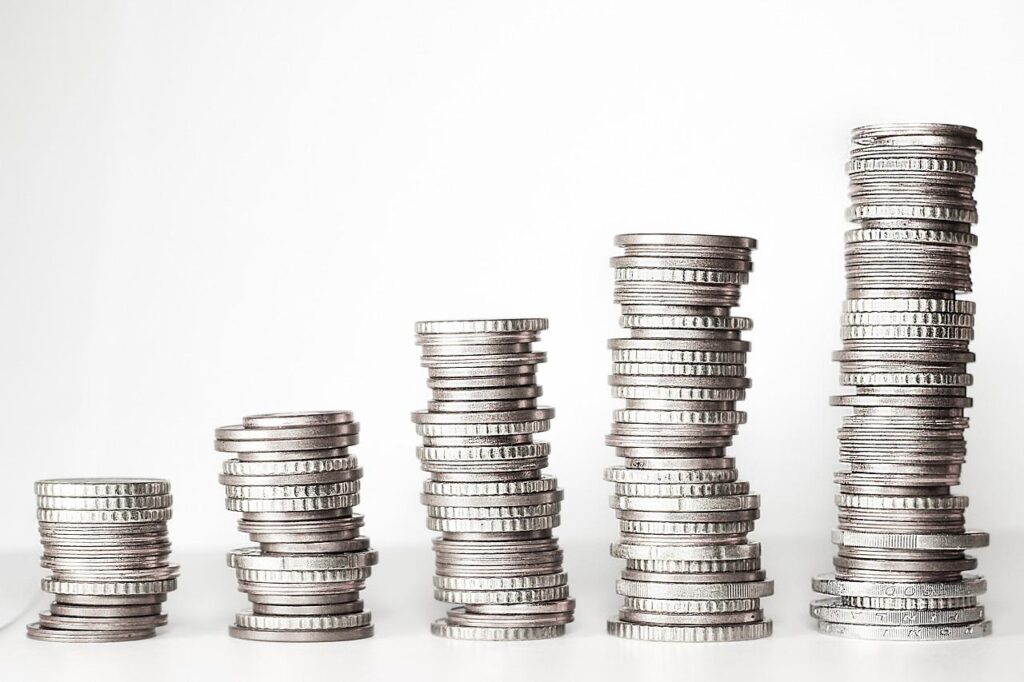
Is Saving Better Than Paying Debts? The Truth About Interest Calculations
The cost of living has been inflating internationally, and millions of people are feeling the effects. This cost increase has led to many relying on debt to make it to the end of the month and has significantly reduced how much people can save for emergencies or retirement.
As of 2024, the average debt among US citizens is $104,215. This debt includes mortgages, car loans, student loans, and credit cards. Cumulatively, US consumer debt has reached over $17 trillion.
In contrast, studies have shown that Americans have a median of only around $7,500 in savings. This large disparity clearly shows that debt is spiraling while savings are diminishing. Despite this, many who are in debt still try to build up savings while paying the minimum on their debt repayments. But is this a good idea?
Compound Interest
While ensuring you have savings on hand is wise, doing so while having large debts may be less so. This is particularly true due to the way compound interest interacts with savings and debt. Understanding compound interest before deciding whether to save or pay down debt is essential.
Simply explained, compound interest is interest calculated on the principal (or initial) amount and any interest accumulated over past periods. As such, this interest amount compounds (or grows) each time it is recalculated.
An example is if there is a principal debt amount of $10,000 at a compound interest rate of 20% annually.
If no payments are made in the first year, the interest will be calculated as 20% of the principal ($10,000), and the total interest will amount to $2,000—leaving a balance of $12,000 outstanding.
In the second year, the 20% annual interest will be calculated on the new balance of $12,000, resulting in a new closing balance of $14,400 ($12,000 + 20% interest equaling $2,400).
The closing balance at the end of the third year will be $17,280 ($14,400 + 20% interest equaling $2,880).
In the example above, the interest compounded over three years amounts to $7,280, adding 72.8% to the initial principal amount. That’s a lot of hard-earned money going right down the drain!
Debts
Compound interest is more detrimental to debt accounts, as these commonly have significantly higher interest rates than savings accounts. As such, the amount of interest accrued by compound interest is much greater and can result in even small loans taking years to repay.
Deciding whether it is best to pay down debt to lessen the impact of compound interest depends on whether it is considered high- or low-interest debt.
High-Interest Debt
High-interest debt is one of the most common forms of debt. This is incurred through credit cards, personal loans, and store accounts. These types of debts often have interest rates above 12% and are drastically affected by compound interest.
Low-Interest Debt
In contrast to high-interest debt, low-interest debt commonly attracts interest rates ranging from 10% downwards. These include mortgages and student loans, which tend to accumulate interest much slower despite their significantly higher principal values.
Savings
Like debts, savings attract different interest rates depending on how the money is saved. Regular savings accounts offered by banking institutions in the US carry an interest rate of just 0.46% APY (annual percentage yield)—significantly less than any debt account.

Other forms of savings, like pensions, offer much higher interest rates, up to 13% annually. Therefore, placing savings in these forms is more beneficial and can result in interest gains that, in some cases, can exceed interest paid on debts.
Is Saving Better Than Paying Debts?
Answering the question of whether saving or paying down debts is the better option is tricky and depends on several factors, particularly the individual’s finances. In most cases, it is better to pay down debts than save. To explain this, we’ve created a real-life example.
For this, we assume that a person has a credit card account with a balance of $15,000 at 16% interest, a mortgage of $120,000 at 7% interest, a savings account of $5,000 at 2.3% interest, and an investment account of $70,000 at 5.8% interest. Over three years, this is what each account will do in terms of compound interest:
Credit Card
Year one: Principal amount of $15,000. Interest accrued $2,400. Closing balance: $17,400.
Year two: Principal amount of $17,400. Interest accrued: $2,784. Closing balance: $20,184.
Year three: Principal amount: $20,184. Interest accrued $3,229.44. Closing balance: $23,413.44.
Total interest generated over three years: $8,413.44 (or 56% of initial principal).
Mortgage
Year one: Principal amount $120,000. Interest accrued $8,400. Closing balance: $128,400.
Year two: Principal amount of $128,400. Interest accrued: $8,988. Closing balance: $137,388.
Year three: Principal amount: $137,388. Interest accrued $9,617.16. Closing balance: $147,005.16.
Total interest generated over three years: $27,005.16 (or 22.5% of initial principal).
Savings Account
Year one: Principal amount of $5,000. Interest accrued $115. Closing balance: $5,115.
Year two: Principal amount $5,115. Interest accrued: $117.65. Closing balance: $5,232.65.
Year three: Principal amount: $5,232.65. Interest accrued $120.35. Closing balance: $5,353.
Total interest generated over three years: $353 (or 7% of initial principal).
Investment Account
Year one: Principal amount $70,000. Interest accrued $4,060. Closing balance: $74,060.
Year two: Principal amount of $74,060. Interest accrued: $4,295.48. Closing balance: $78,355.48.

Year three: Principal amount: $78,355.48. Interest accrued $4,544.62. Closing balance: $82,900.10.
Total interest generated over three years: $12,900.10 (18.4% of initial principal).
Ideal Practices
As seen in the examples below, the interest generated by debts far exceeds that generated by savings. Therefore, it is commonly accepted as best practice to pay off all high-interest debts before attempting to save, as the interest on these debts will far exceed the return gained on savings.
However, once these debts are paid off, it is recommended that you begin saving while maintaining low-interest debts. This is because when savings are offered at good interest rates or reach a level where the principal amount attracts large sums of compound interest, these savings may exceed debt repayments.
Extra money earned through additional work or if you get paid when you win while gambling online can be used to boost savings. This will help increase the principal amount and result in greater interest earned.
Despite the above, deciding to save or pay down debt depends on an individual’s finances. It should be carefully considered after identifying interest rates in play, amounts owed or saved, and the impact of compound interest.





